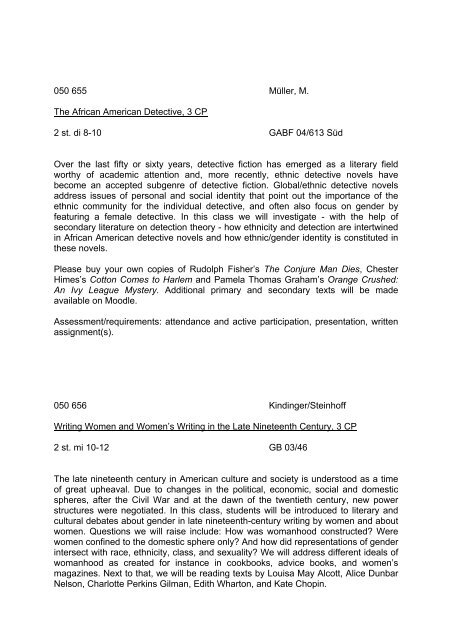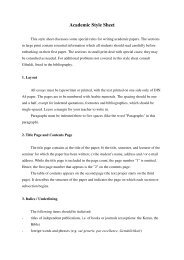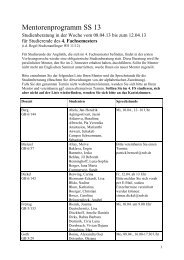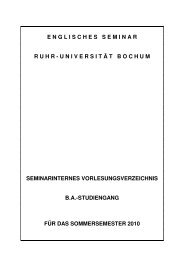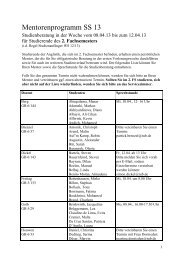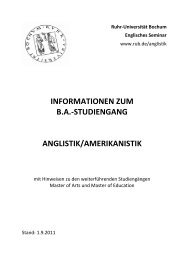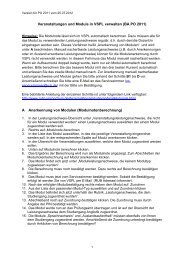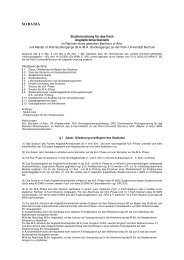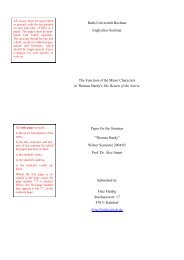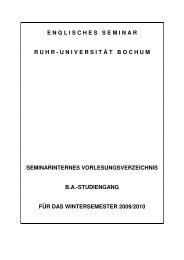gb - Englisches Seminar - Ruhr-Universität Bochum
gb - Englisches Seminar - Ruhr-Universität Bochum
gb - Englisches Seminar - Ruhr-Universität Bochum
You also want an ePaper? Increase the reach of your titles
YUMPU automatically turns print PDFs into web optimized ePapers that Google loves.
050 655 Müller, M.<br />
The African American Detective, 3 CP<br />
2 st. di 8-10 GABF 04/613 Süd<br />
Over the last fifty or sixty years, detective fiction has emerged as a literary field<br />
worthy of academic attention and, more recently, ethnic detective novels have<br />
become an accepted subgenre of detective fiction. Global/ethnic detective novels<br />
address issues of personal and social identity that point out the importance of the<br />
ethnic community for the individual detective, and often also focus on gender by<br />
featuring a female detective. In this class we will investigate - with the help of<br />
secondary literature on detection theory - how ethnicity and detection are intertwined<br />
in African American detective novels and how ethnic/gender identity is constituted in<br />
these novels.<br />
Please buy your own copies of Rudolph Fisher’s The Conjure Man Dies, Chester<br />
Himes’s Cotton Comes to Harlem and Pamela Thomas Graham’s Orange Crushed:<br />
An Ivy League Mystery. Additional primary and secondary texts will be made<br />
available on Moodle.<br />
Assessment/requirements: attendance and active participation, presentation, written<br />
assignment(s).<br />
050 656 Kindinger/Steinhoff<br />
Writing Women and Women’s Writing in the Late Nineteenth Century, 3 CP<br />
2 st. mi 10-12 GB 03/46<br />
The late nineteenth century in American culture and society is understood as a time<br />
of great upheaval. Due to changes in the political, economic, social and domestic<br />
spheres, after the Civil War and at the dawn of the twentieth century, new power<br />
structures were negotiated. In this class, students will be introduced to literary and<br />
cultural debates about gender in late nineteenth-century writing by women and about<br />
women. Questions we will raise include: How was womanhood constructed? Were<br />
women confined to the domestic sphere only? And how did representations of gender<br />
intersect with race, ethnicity, class, and sexuality? We will address different ideals of<br />
womanhood as created for instance in cookbooks, advice books, and women’s<br />
magazines. Next to that, we will be reading texts by Louisa May Alcott, Alice Dunbar<br />
Nelson, Charlotte Perkins Gilman, Edith Wharton, and Kate Chopin.


